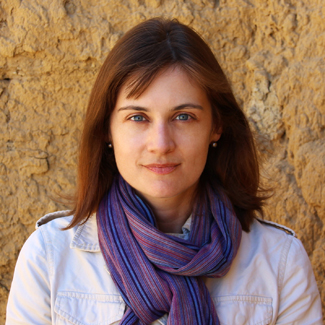Campus News
Egyptologist awarded NEH Digital Humanities Start-Up Grant
Assistant professor of history Elaine Sullivan has received a Digital Start-Up Grant from the National Endowment for the Humanities to develop a three-dimensional model and virtual tour that will demonstrate how an ancient Egyptian site evolved over more than 3,000 years.

Assistant professor of history Elaine Sullivan has received a Digital Start-Up Grant from the National Endowment for the Humanities to develop a three-dimensional model and virtual tour that will demonstrate how an ancient Egyptian site evolved over more than 3,000 years.
The $47,200 grant is one of 17 awards directed to development of new digital tools for study of the humanities that are part of a larger slate of 232 grants just announced by the NEH.
Sullivan is co-principal investigator of a Digital Humanities Research Cluster funded by the Institute for Humanities Research (IHR) at UC Santa Cruz.
“I think of digital humanities as using new technologies to answer questions I can’t answer now–opening up new realms of scholarship,” said Sullivan.”
“I’m excited to be part of this working group,” she added. “We all do incredibly different things, but we all see commonalities in the ways we can be creative in using these new technologies. I think people are interested in pushing the boundaries of digital scholarship.”
Sullivan joined the UC Santa Cruz faculty in 2013. Her field experience in Egypt includes five seasons of excavation with Johns Hopkins University at the temple of the goddess Mut (Luxor), as well as four seasons in the field with a UCLA project in the Egyptian Fayum, at the Greco-Roman town of Karanis.
She received her M.A. and Ph.D. in Egyptian art and archaeology from Johns Hopkins University, and her B.A. in history from Duke University.
Sullivan’s project, titled 3D Saqqara, integrates Geographic Information Systems (GIS)–one of the prevalent formats for data organization in modern archaeology—with 3D modeling to re-create the ancient Egyptian cemetery at Saqqara. But Sullivan noted it will also add a fully 4D study of the archaeological site across space and time.
“I’m hoping to finish construction of the model with this grant” said Sullivan. “The next step is to publish the model and stimulate access to it. The goal is to be creating resources that will be accessible to researchers, students, and the general public.”
Irena Polić, associate director of the IHR, noted that Digital Humanities Start-Up Grants from the NEH provide essential support for the planning stages of innovative projects that promise to benefit the humanities.
“Our Digital Humanities Research Cluster has done a tremendous job on jumpstarting a conversation about digital scholarship on our campus,” said Polić.
“We are thrilled to have received this grant and look forward to working with Elaine on the next steps,” she added.